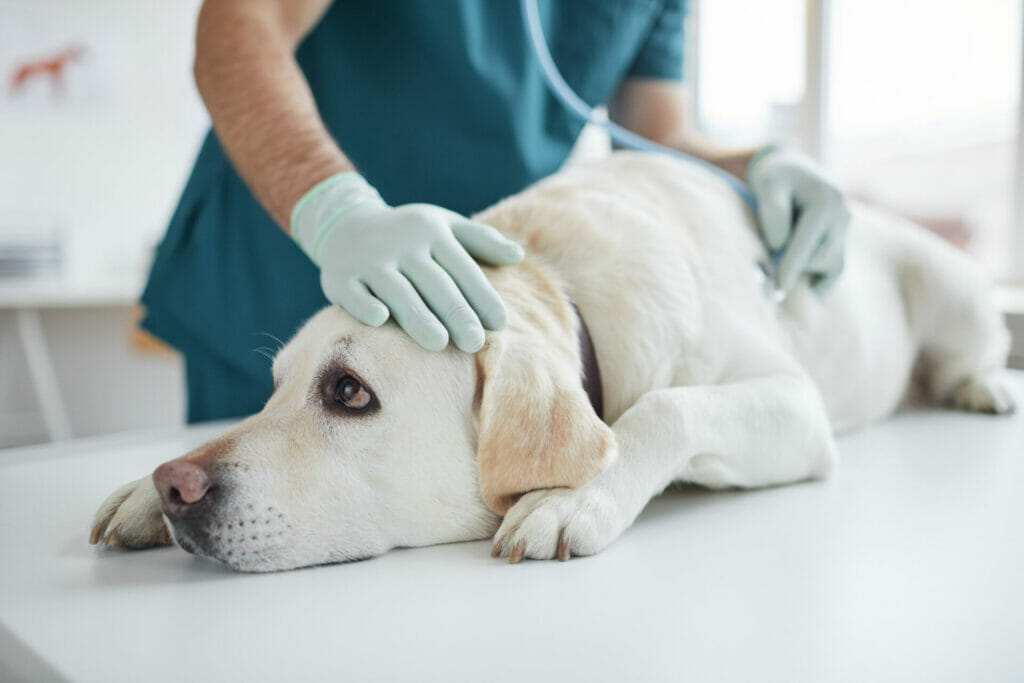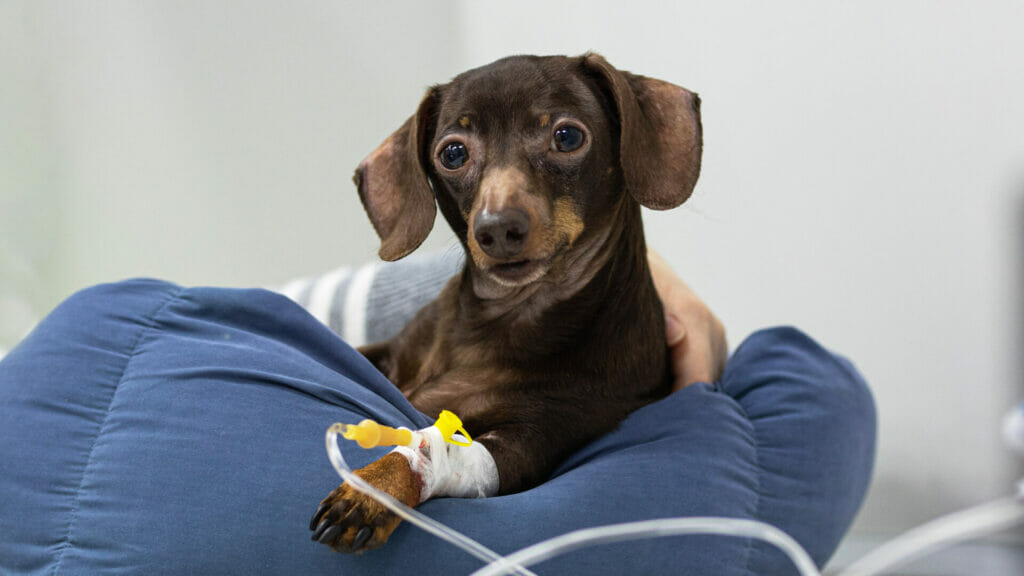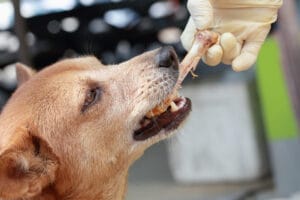A Lymphoma Diagnosis
“Stella has canine lymphoma.”
I can still remember hearing those words for the first time. My beautiful, 6-year-old Golden Retriever – bouncing around and happy only days before – was now almost unable to walk and unknowingly preparing for the fight of her life.
Like most people, I knew dogs could get cancer, but it was never more than a background thought. So when Stella woke up one morning and didn’t want to walk down the stairs, I brushed it off as her having a lazy morning (which…let’s be honest, she learned from me). Then not wanting to walk down the stairs turned into refusing. And a few hours later, she was limping.
I figured she’d hurt her leg and felt around for some type of clue. Aha! Her knee was very slightly swollen; the problem was solved. We’d go to the vet, get an x-ray, and she’d be good as new in no time. Only it wasn’t her knee that was swollen; it was her Popliteal lymph node. And unlike most of the causes for swollen lymph nodes, it wasn’t due to an infection. It was due to cancer. T-Cell Lymphoma, to be exact – the most aggressive form of canine lymphoma.
We were referred to the Angel Care Cancer Center at California Veterinary Specialists in Ontario, California. There we were given options based on how aggressively we wanted to fight for Stella’s life – knowing that without treatment, she’d have likely had no more than a month left with us. Chemotherapy was the only option.
Stella went through a year of chemotherapy. She went into remission twice, tested a newly approved drug for Canine Lymphoma called Tanovea, and made her entire medical staff smile anytime she was in the room. I can safely say that my heart was not the only one broken when she finally succumbed to her lymphoma in 2017.
Canine Lymphoma Awareness Day
Every year since Stella’s passing, Canine Lymphoma Awareness Day reminds me to share my story with pet parents. Not to make people sad but to remind everyone that our pups rely solely on us to advocate for their health. During Stella’s diagnosis, we were praised for how early we caught the swollen lymph node and were also told that played a role in how effective the treatment would be for her.
I hit the jackpot with the team that worked with Stella. So I sat down with her doctor, nationally renowned veterinary oncologist Dr. David Heller to answer some of the most pressing questions regarding canine lymphoma.
What are some of the first symptoms of lymphoma in dogs?
Dr. Heller: Often, there are no symptoms other than swollen lymph nodes (glands). These glands can be found throughout the surface of the body. About a third of the time, dogs will have systemic symptoms associated with the disease (such as lack of appetite, weight loss, increased drinking or urination, etc.) It is essential to schedule an annual check-up with a veterinarian for a physical examination and also bring your pet in immediately if any abnormal symptoms are noted.

Are there different types of lymphoma? What are they?
Dr. Heller: Yes, there are many different types of white blood cell cancers (lymphomas and leukemias) that a dog can get. Broadly categorized, they can be distinguished as B or T cell lymphomas and also as indolent (slowly growing) or high-grade (rapidly growing). Once a dog is diagnosed, a veterinary oncologist will often recommend testing to differentiate the specific type.
Is there anything to do to prevent cancer?
Dr. Heller: In dogs – just like in people – a healthy diet, maintaining a normal weight, and an active lifestyle may be the best cancer preventative.
Do dogs tolerate chemotherapy the same way that people do?
Dr. Heller: The side effects of chemotherapy in dogs are generally not nearly as harmful as we anticipate they are going to be. Dogs are less sensitive to chemotherapy side effects, and we generally use lower dosages of it in dogs compared to people. Most dogs have mild or, in some cases, no side effects with our standard chemotherapy treatments. People are quite surprised when I tell them that dogs tolerate [both chemotherapy and radiation therapy] much better than most people.
What are the best treatment options if my pet is diagnosed with cancer?
Dr. Heller: This depends very heavily on the type of cancer and the overall health of the pet. Generally, most treatments are well-tolerated with minimal side effects, but treatment must be customized and tailored to each individual case.
Are specific breeds more likely to develop any types of cancer?
Dr. Heller: Yes, there is definitely an increased risk of certain cancers in purebred dogs as compared to mixed-breed dogs (mutts). For example, lymphoma is commonly seen in Dobermans, Rottweilers, and Boxers. Other types of cancers are more common in specific breeds as well. This does not mean that all Boxers will develop lymphoma, just that the odds of a Boxer developing lymphoma in their lifetime is greater than that of a mixed-breed dog.
What is one piece of advice you’d give to pet parents going through a new lymphoma diagnosis with their pup?
Dr. Heller: Realize that it’s a highly treatable condition and treatment will help most pets live longer, more comfortable lives.
The Aftermath
It’s been over two years since I said goodbye to Stella. We’ve since adopted a new puppy, Bjorn – who stole the heart I thought was permanently broken. I still miss Stella every day; there seems to be a reminder everywhere. But today is not a day to be sad; it’s a day to be smart. To research and learn more about the WHY and HOW of canine cancer.
Educate yourself and ask your vet as many questions as you need. If your vet doesn’t want to answer them all, maybe it’s time to find a new one.
But if all you take from this is one thing, let it be this: hug your dog a little tighter tonight and think of all the reasons you love them while you’re doing it. We are their only advocates in this world, and we owe them as much love and compassion as we can give because what they give us in return is unmeasurable.




















